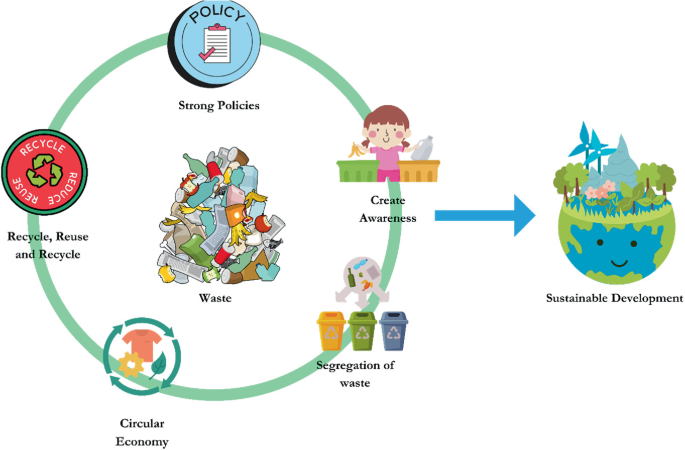The Best Strategy To Use For Reclaim Waste
The Best Strategy To Use For Reclaim Waste
Blog Article
The 15-Second Trick For Reclaim Waste
Table of ContentsFascination About Reclaim WasteRumored Buzz on Reclaim WasteThe 30-Second Trick For Reclaim WasteReclaim Waste Can Be Fun For AnyoneSome Known Incorrect Statements About Reclaim Waste
Discover the kinds, events, and forms of liquid waste. Domestic sewer waste refers to the waste and items from a residential septic container. This kind of waste is created by human beings in residences, institutions, and other structures. This only includes septic containers that have a drain area. The proper monitoring and disposal of domestic sewer waste need fluid waste to be transferred to a sewer treatment plant where the appropriate techniques and tools are put on cleanse and deal with waste.
Commercial waste typically consists of potential dangers, such as combustible materials or a blend of liquid and solid waste items, and calls for a more sophisticated and detailed disposal process. The disposal of industrial waste typically includes the purification of waste before transport to make certain safe and appropriate disposal. Hazardous waste is created from byproducts and overflow of commercial procedures and manufacturing.
This kind of waste can not use the exact same sewage administration transport or procedures as septic or commercial liquids. The hazardous waste monitoring procedure calls for the inspection and testing of liquid waste before it undergoes the disposal procedure (liquid waste removal). Runoff waste is the liquid waste that originates from drainage and excess stormwater in extremely booming locations or cities
Drainage waste can create contamination and flooding otherwise handled correctly. Discover more about sewage system cleaning and waste management. Guaranteeing appropriate waste management can stop catastrophes and minimize environmental harm. Both individuals in household setups and experts in commercial or manufacturing sectors can take advantage of comprehending the procedures and policies of fluid waste management.
The Definitive Guide for Reclaim Waste
Contact PROS Solutions today to find out about our waste administration and disposal solutions and the proper means to care for the fluid waste you create.
(https://profile.hatena.ne.jp/reclaimwaste1/)Do you recognize what occurs to your water when you end, flush the commode or drain the cleaning maker? No? Well, it's worth recognizing. This supposed 'wastewater' is not only an essential source however, after treatment, will be released to our land, waterways or the ocean. Made use of water from bathrooms, showers, baths, cooking area sinks, laundries and commercial processes is referred to as wastewater.

water made use of to cool equipment or tidy plant and equipment). Stormwater, a type of wastewater, is runoff that moves from agricultural and metropolitan locations such as roofings, parks, yards, roads, paths and gutters right into stormwater drains pipes, after rain. Stormwater flows without treatment straight to regional creeks or rivers, eventually getting to the sea.
Reclaim Waste Fundamentals Explained
In Queensland, the majority of wastewater is treated at sewage treatment plants. Wastewater is transported from domestic or industrial websites through a system of drains and pump terminals, called sewage reticulation, to a sewage therapy plant. Neighborhood governments build, maintain and operate most sewer therapy plants. Operators are certified under the Environmental Management Act 1994 to discharge treated wastewater at an acceptable environmental requirement right into rivers.
The Department of Natural Resources encourages city governments about managing, operating and maintaining sewage systems and therapy plants. In unsewered locations, regional governments may require owners to set up specific or household sewer treatment systems to treat domestic wastewater from toilets, cooking areas, bathrooms and washings. The Department of Natural Resources authorises making use of house systems when they are verified to be efficient.
In some new neighborhoods, therapy of some stormwater to get rid of litter, sand and gravel has actually begun using gross toxin traps. Wastewater therapy happens in 4 phases: Eliminates strong matter.
Wastewater after that streams right into large storage tanks where solids settle and are gotten rid of as sludge. Grease and scum are skimmed from the surface area. Utilizes little living organisms referred to as micro-organisms to break down and eliminate continuing to be dissolved wastes and great particles. Micro-organisms and wastes are integrated in the sludge. Gets rid of nitrogen and phosphorus nutrients that could cause algal blooms in our waterways and intimidate aquatic life.
The Ultimate Guide To Reclaim Waste
Nutrient elimination is not available whatsoever sewage treatment plants due to the fact that it calls for pricey specialized equipment. It is ending up being a lot more typical in Queensland. Clear liquid effluent produced after treatment might still have disease-causing micro-organisms. If this effluent is released right into rivers such as rivers or the sea, the micro-organisms will ultimately pass away out.

A lot of wastewater moves into the sewage system. Under the Act, regional federal governments carry out approvals and permits for eco appropriate tasks (Periods) including wastewater launches that might have a neighborhood effect.
The Ultimate Guide To Reclaim Waste
Tracking offers valid information about water quality and can confirm that licence conditions are being met. The information acquired with tracking offers the basis for making water top quality decisions.
Report this page